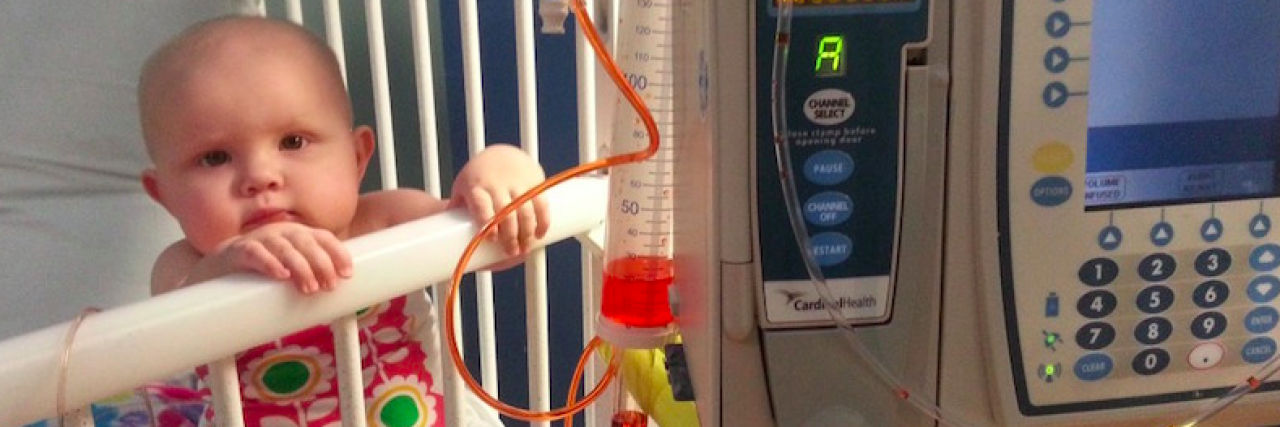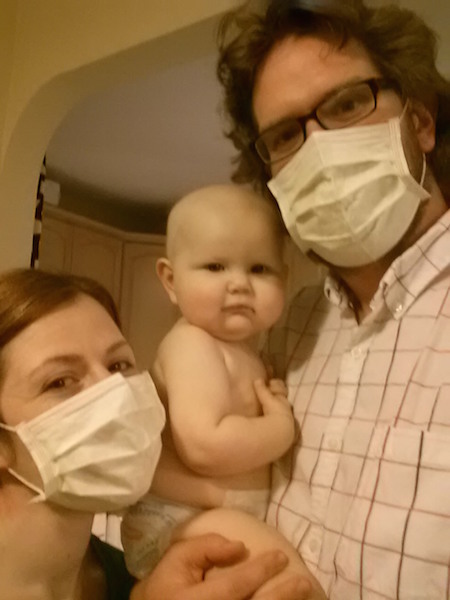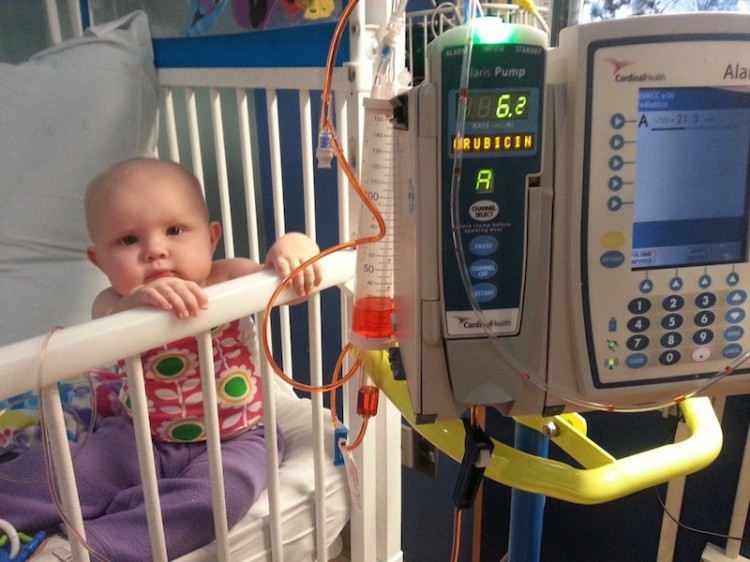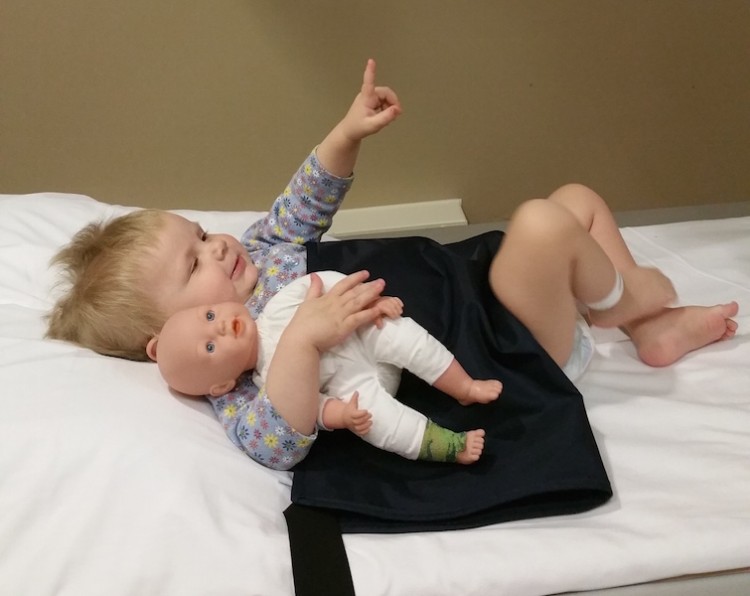Over the weekend, we passed our two-year anniversary of the day our daughter, Sally, first got sick. From that moment on, life was never the same for our family and never will be.
It doesn’t feel like two years; the days and weeks are long, but the years have gone by quick. Sally is expected to end her treatment sometime in August or September. It seems close, but for us still feels like a lifetime away. With that said, it’s on our minds, but not for the reasons you may think.
There are a lot of misconceptions about what life after chemo is like for families. Nicole and I are often asked about Sally’s treatment ending with questions that include:
Are you excited for it all to be over?
Are you going to throw a big party and celebrate?
You’re done after this, right? You just get back to normal?
The simple answer to these questions and many like them: No.
For a stretch of several nights recently, I couldn’t sleep. I felt like there was an elephant sitting on my chest. I was having a lot of anxiety thinking about the end of treatment, not only about the cancer side of it, but the idea of returning to a “normal” life after everything we’ve been through.
After a few days of feeling this way, I finally looked at my wife, Nicole, one night through held-back tears and said, “Honey, I’m having a lot of anxiety about Sally ending treatment.” After explaining everything on my mind, Nicole confided that she, too, was experiencing the exact same worries, and we talked about how to deal with them. We shared a kiss and acknowledged we’re in this together, a feeling we both badly needed. We decided we should share these feelings now to give people a better understanding of how we’re coping in advance of chemo ending.
You see, Sally finishing her treatment isn’t the end. True, her chemo treatment plan for Infant Leukemia concludes, but we have a long journey ahead of us.
First the cancer side of it. Sally’s specific infant leukemia with t(4;11) MLL translocation diagnosis has a high relapse rate. Early on in Sally’s treatment after she went into remission, one of the questions we asked the doctors was when the threat of relapse would be highest. They answered that the threat would be greatest in the first six months after treatment ended, once she was off the chemo. From there, her odds would slowly improve, but the threat would remain high for another year following that. So we have 18 months of high-risk “wait and see.” Sally won’t be considered a “survivor” by the medical community until five years post-diagnosis, a label we may never feel comfortable using. Sadly, we’ve watched kids relapse both within and after this time frame.
Sally will have received intense treatment for over two years, more intensive than treatments for leukemias, including other infant leukemics. This may save her life, but it could come with a price. Sally is not only high risk for relapse but also for a secondary cancer at some point in her life, whether as a child or as an adult, due to the impact of this intense treatment on her body. We knew this when we decided to continue pushing forward after she had the seizures; it’s a risk we painstakingly decided to take.
The treatment has left her bones weak, so we’re trying to find a hospital that can sedate Sally for a bone density exam so she can hopefully undergo bone strengthening treatment. We are still working at trying to get her to take her first steps, she has a long ways to go to physically catch up with other kids her age. She has never eaten by mouth other than a few specs of food and lacks the jaw strength for chewing. We have a long road ahead of us with transitioning her off of the g-tube and to normal eating, as well as phasing out the many medications she’s on. We don’t know how long it will take for her immune system to rebound after being repressed for two years, so we can’t rush her back into crowded indoor spaces.
Instead of saying we’re done with treatment, we’re going to say that this phase of her treatment will have ended. We know too much about childhood cancer to think or accept that “it’s over.” Emotionally, Nicole and I are scared of life post-treatment. You see, many people assume that once treatment has ended the child’s hair grows back, they go to school, and life at home and work for parents goes back to normal. That may be the case for some people, but is not the case for most.
It may shock you to learn that most parents have a harder time emotionally after treatment than during. There’s a perception that you’ve made it through treatment, you should be happy about it and get on with your life, right? During treatment, you focus on getting better. But afterwards, when all is quiet and you’re on your own, that’s when the horrors of what your family went through sink in.
A fever will never be just a fever anymore to us or any other cancer parent. Is the fever a sign of relapse? Is the bruise from a normal fall, or are his/her platelets low? Is the knee soreness growing pains, or is it a tumor? We know too much now, and nothing will ever be simple again.
In addition to the emotional scars, we’re scared of “getting back to normal.” We are definitely out of practice socially, and we’re navigating if and how to share our history with people who aren’t aware of what we’ve been and continue to go through. Imagine living in relative seclusion and then going out into the regular world and being social with strangers. I was recently at a fundraiser that benefitted Sally, I felt overwhelmed and out of place in a room filled with joyous people and struggled to carry on a normal conversation. I’m sure Nicole and I will learn to adjust, but it will take us some time.
Finally, there will be no celebration when we finish this treatment plan. There will be no “Last Day of Chemo” sign Sally will pose with and no party. Knowing what most of our fellow cancer parents are dealing with, from the emotions, to threat of relapse, to long term effects of the treatment, it doesn’t seem right. More so, we’re uncomfortable celebrating knowing all the kids and their families who didn’t survive to the end of treatment. How can we hold up a sign and smile when kids we knew like Mac, Erik, Jed, Isabella, Mikey, both Kylies, Kallie and others didn’t have a chance to? Or watching parents we know intensely grieve for their children years after they were lost? Or knowing kids like Tripp and Padraig, who are experiencing relapses? We respect that every family is different, but this is how we Kabels are choosing to handle it.
So no, we aren’t excited for the end of treatment. We are happy to hopefully be able to turn the page on it, but it’s only a chapter in the book of Sally’s story. Hopefully there will be less stress and more laughs in our lives, but these two years have changed us. We’ll probably never be the old Matt and Nicole. When you see us, behind the smiles and spunk, there will always live an anxiety that we will never be able to shed. We have to accept that this is OK and hope others can respect that.
Please keep Sally and all the families dealing with childhood cancer in your thoughts and prayers.
A longer version of this story originally appeared on Sweet Sally Sunshine.
Images via contributor




